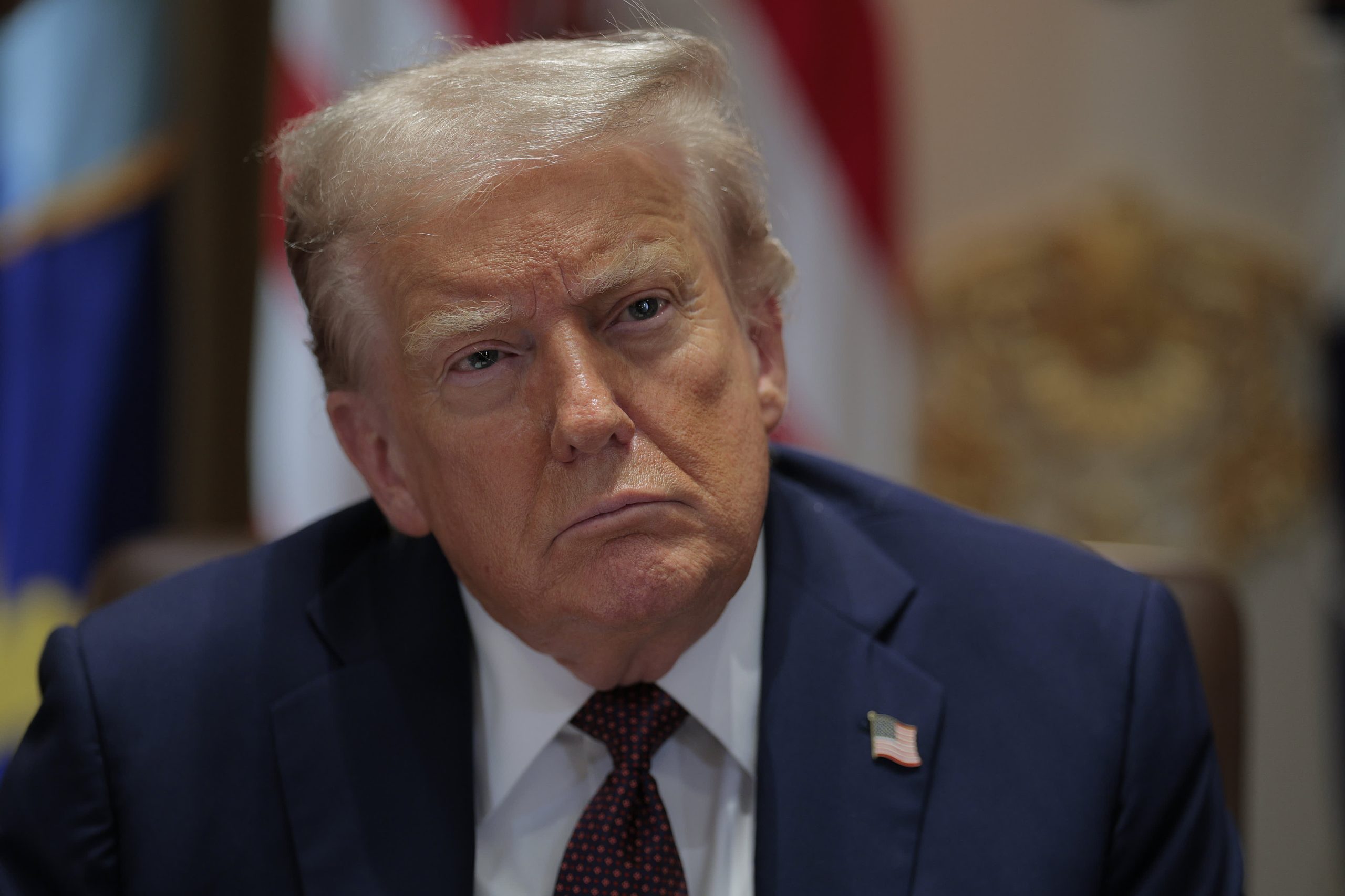Taken from CNBC’s Daily Open, our international markets newsletter — Subscribe today
It’s starting to feel like we’re in a game of Pac-Man, in which the U.S. government is the eponymous hungry yellow blob furiously chomping on everything in sight.
The White House’s 10% stake in Intel and revenue-sharing agreement with NvidiaAMDstart in a series of deals, as President Donald Trump promised. On Tuesday, Commerce Secretary Howard Lutnick told CNBC that the Pentagon is having “a monstrous discussion” over whether to acquire equity stakes in firms such as Lockheed Martin.
Likewise, Trump’s early assaults on Federal Reserve Chair Jerome Powell turned out to be just his opening salvo on the central bank. On Monday night stateside, the U.S. leader terminated Lisa Cook, a Fed governor, over allegations of mortgage fraud. The next day, at a Cabinet meeting, Trump said he will “have a majority” of his nominees at the Fed, “so that’ll be great.”
Prior to Trump’s inauguration, analysts were upbeat about a looser regulatory environment that could facilitate more mergers and acquisitions. They probably weren’t thinking about the White House being the main deal-maker.
What you need to know today
Bain Capital receives takeover bids for Canada Goose. The luxury parka maker’s controlling shareholder is looking to offload its holding, with existing offers valuing Canada Goose at around $1.4 billion, according to people familiar with the matter.
Fed Governor Lisa Cook will sue over Trump’s termination of her. Relatedly, the central bank said Tuesday governors can only be removed by presidents “for cause.” Trump said he will soon have a “majority” of his nominees on the Fed board.
The Pentagon is weighing stakes in defense contractors. Lockheed Martin is one of the companies that U.S. Department of Defense officials are “thinking about” acquiring a stake in, Commerce Secretary Howard Lutnick told CNBC Tuesday.
U.S. stocks shrug off meddling in the Fed. All major indexes rose Tuesday, buoyed by upbeat sentiment over Nvidia’s upcoming earnings announcement. China’s CSI 300 fell on Wednesday even as the decline in the country’s industrial profits slowed in July.
[PRO] Former U.S. President Richard Nixon also pressured the Fed. Here’s what happened to markets after he did so — and what lessons investors can draw from that episode.
And finally…
China’s stock market looks to shake off casino vibes
About a decade ago, China’s retail investors sought annual returns of 30% to 50%, dismissing single-digit gains, said Jin Xin, author of a Chinese investment book. By contrast, the S&P 500 and Dow Jones Industrial Average have delivered less than 15% annualized returns over the past decade.
But mainland Chinese investors have matured since then. Various crises wiped out many portfolios. Now, investors in China are less likely to chase single-stock stories, while holding shares longer and aiming for steady 5% to 10% returns, Jin said.
— Evelyn Cheng
International: Top News And Analysis
Read the full article <a href="Read More” target=”_blank”>here.



